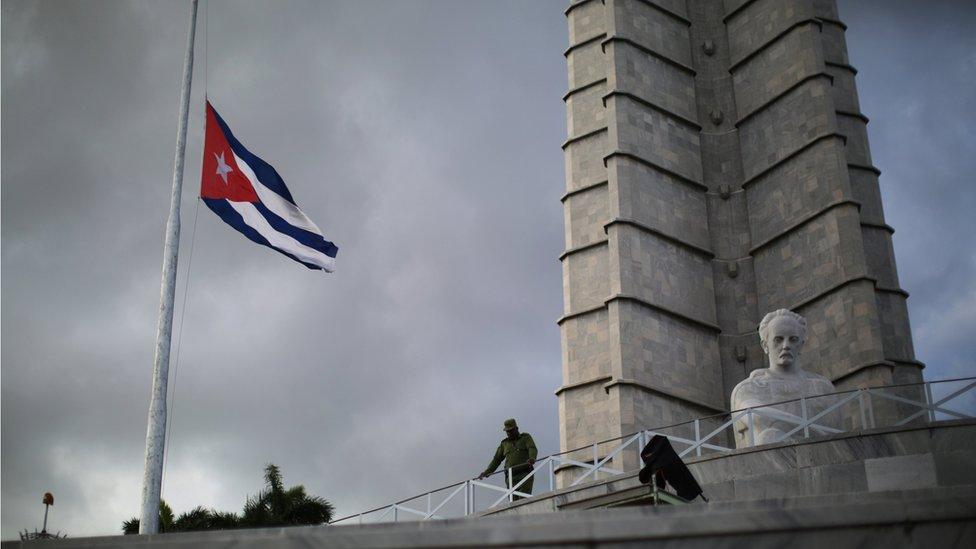Fidel Castro death: Cubans say sad goodbye, or good riddance
- Published
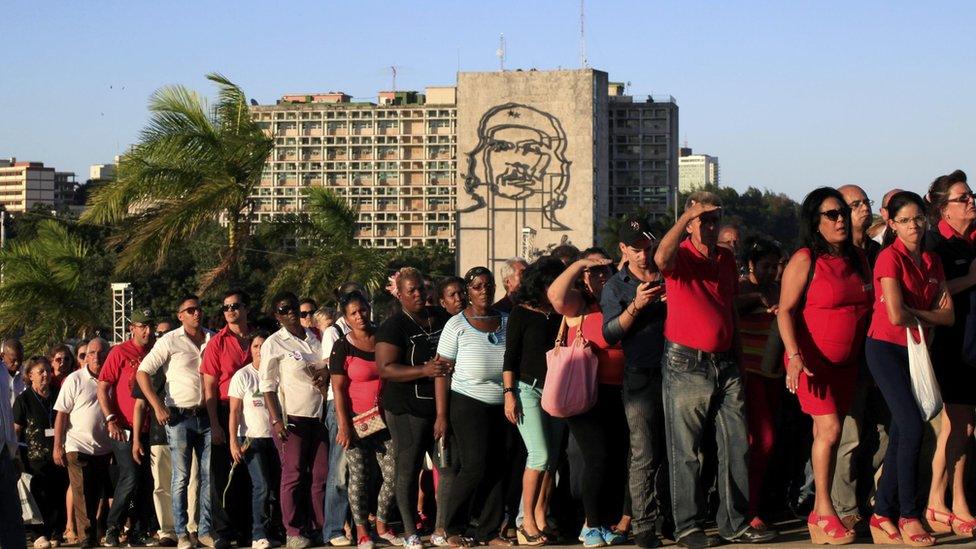
People queue to pay tribute to Cuba's late President Fidel Castro at Revolution Square, Havana
Revolution Square in Havana has witnessed some of Fidel Castro's most historic moments. From his famously long speeches to the visit of Pope John Paul II, it is an iconic, almost sacred place for the Cuban Revolution.
But on Monday, it was home to tens of thousands of mourners. From babies in their parents' arms to the elderly and frail, people from across Cuban society turned out from early morning to bid him goodbye.
Doctors in white jackets, nurses in uniform, soldiers, students and teachers, all of them speaking in the same hushed tones, careful to behave with dignity under the watchful eye of the state security officers.
Some may have been government-organised - schoolchildren and other groups were bussed in - but many were there of their own free will.
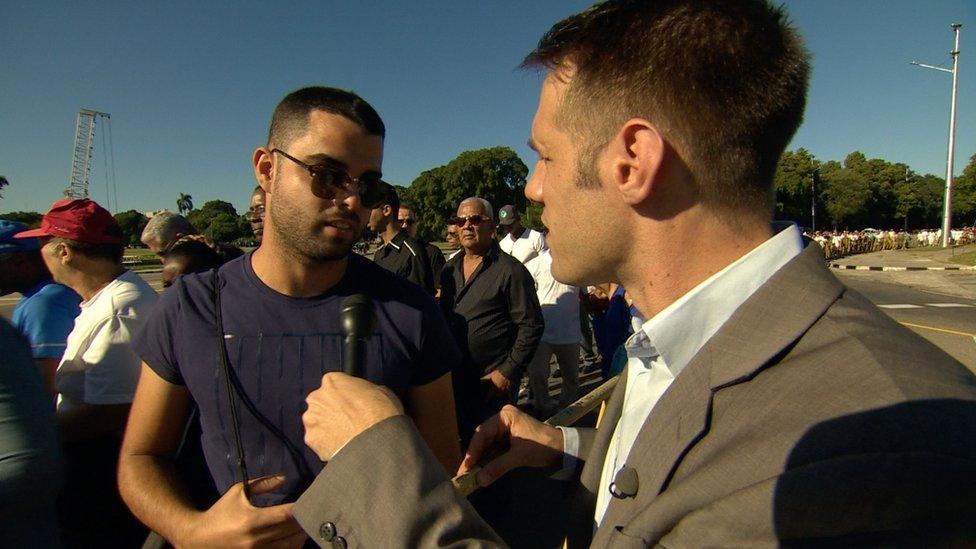
"Everyone is affected today," Javier Morales (left) told Will Grant
"I came here because Fidel Castro was a very important character in Cuba. Whether you loved him or hated him, whether in Havana or in Miami, everyone is affected today," said a young civil engineer, Javier Morales.
Standing quite far back in the queue, Mr Morales accepts that opinion on Castro's legacy is split but felt that Cubans from all generations should acknowledge the man after his death: "Old people and young people, we all have something to thank him for. We have free education, we have free medical care, we have free social assistance thanks to him."
Inside the plaza's Jose Marti monument, there was no urn on display carrying Fidel Castro's ashes, as many expected. Instead there was simple tribute: a photo of a young Fidel Castro, a guard of honour, floral wreaths and posters carrying revolutionary slogans.
But while Castro remains might not have physically been there, many were visibly moved as they filed past.
"He gave me everything I have," said Angela Suarez Narajo, a nurse, through her tears. "He was like a father to us."
Of course, in south Florida, they see Fidel Castro through very different eyes. Rather than a loving father, they feel like the Cubans still on the island are suffering some collective form of Stockholm Syndrome, in love with their own abuser.
The long weekend of parties in Miami celebrating Castro's departure was testament to that.
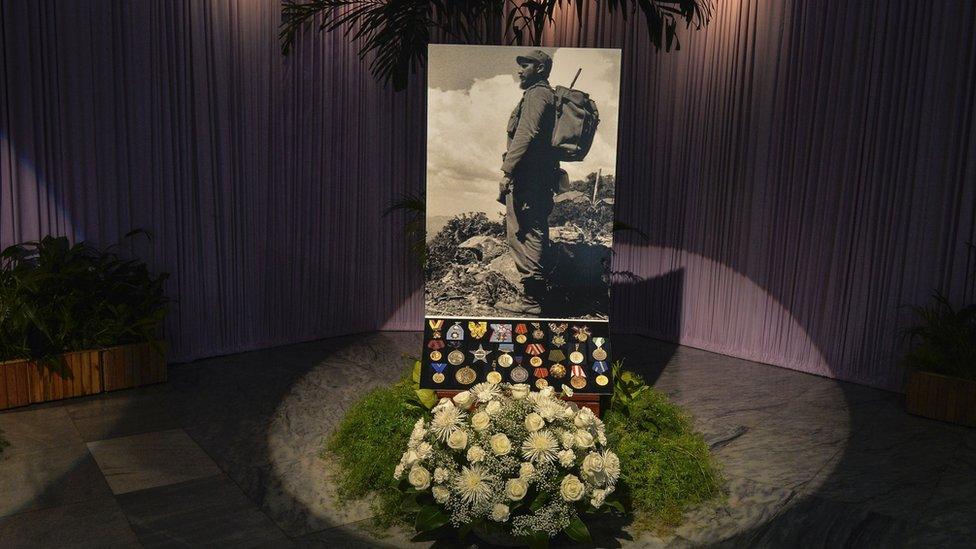
The tribute to Fidel Castro at the Jose Marti memorial in Revolution Square in Havana
They will have been bolstered by two things in November: the final removal of Fidel Castro from Cuba and the election of Donald Trump to the White House.
"If Cuba is unwilling to make a better deal for the Cuban people, the Cuban/American people and the US as a whole, I will terminate deal,'' the president-elect wrote in a tweet on Monday, referring to the two years of diplomatic detente with Cuba that President Obama has led in his second term.
Coming on the same day that direct Miami-Havana flights with US airlines were re-established, the future president's language on Cuba is only going to heighten the sense of uncertainty among ordinary Cubans following Castro's death. The future with Washington might again turn hostile under Trump and, if it does, for the first time since January 1959 he won't be on hand to help chart the course.
"He has died at a moment when there is a question mark over the normalisation process with the United States because we don't know what's going to happen with Trump," says Carlos Azuguray, a former Cuban diplomat.
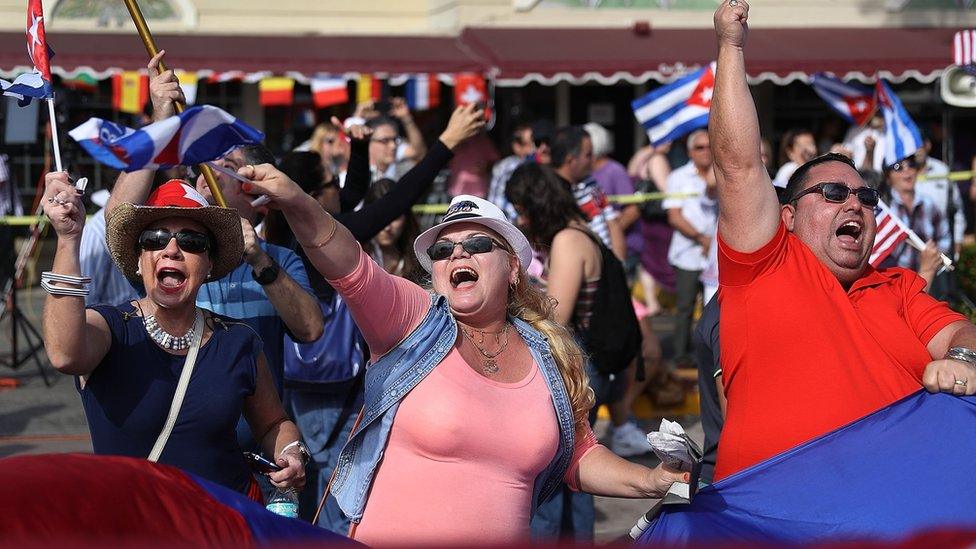
Cubans in Miami, Florida, celebrated the news of Castro's death
"But then, he has also died a year before the elections here that will determine the succession from Raul Castro to the next president of Cuba."
With the death coming at such a historic time, some ask if it might bring about some kind of political or economic change in direction. Mr Azuguray thinks that things will largely keep moving along the same path, or even "might accelerate all these processes" of internal economic liberalisation.
Those still standing in the queues under the warm winter sun of Havana, waiting to pass by the government's altar to their eternal leader had little interest in taking stock of such political questions right now.
"He's not dead, he still lives," one mourner exclaimed out loud, her voice piercing the funereal murmur, as she wiped the tears away with her sleeve.
- Published26 November 2016
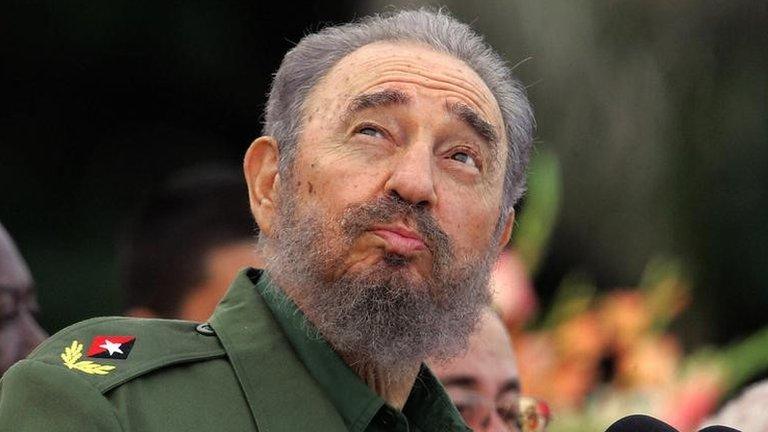
- Published26 November 2016
- Published27 November 2016
